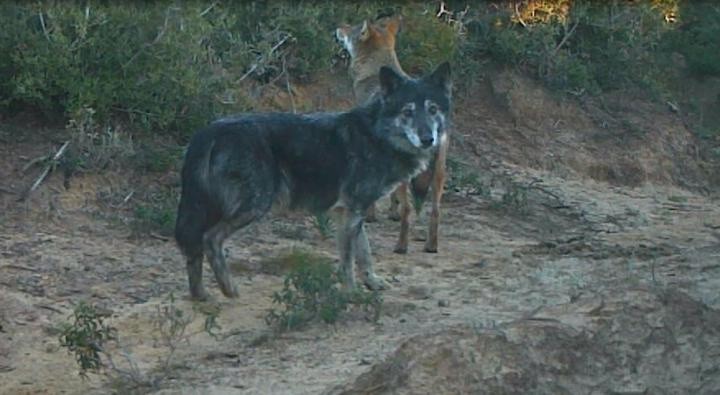Experts are currently researching wolves. They believe these creatures are the first responders of a brain's lethal illness that may quickly kill humans.
New research is currently being undertaken to observe the Yellowstone National Park wolves, according to the Independent. The early findings indicated that the first line of protection against an awful epidemic that destroys wildlife herds might be the big native canines.
MSN reported that scientists are researching an animal practice dubbed "predator cleansing," which arises because by destroying the livestock affected by the disease, the meat-eater sustains a prey group's welfare.

So What Is This Brain Disease All About?
Chronic wasting disease, a neurological condition that is infectious, is so rare that some doctors term it an "outer space disease." First discovered in 1981 by wild deer, it contributes to the degradation of cervical brain tissue of elk, moose, and caribou. Symptoms include lustlessness, drooling, and stumbling emaciation, and death.
According to the US Center for Disease Control and Prevention, an irregular version of a cell protein called a prion acts somewhat differently than bacteria or viruses that trigger it. The disease has spread to wild cervical communities and is now present in 26 states in the United States and many regions in Canada, as well as in South Korea and Scandinavia.
Cooking does not destroy prions, and scientists fear that human beings who hunt and eat deer or other creatures tainted with it transmit chronic wasting disease.
Wolves Will Restrict The Spread of the Disease
This suggests that wolves have an important part in limiting the transmission of chronic wasting disease if the researchers' hypothesis is right.
Because it infects deer and related species around the country and across the globe, the virus is a deadly one. They are worried that one day the disease could affect humans as well.
Ellen Brandell, a wildlife ecology doctoral student at Penn State University, said that no management mechanism has been developed to effectively monitor the transmission of the disease.
If maybe the ten packs of wolves in the forest, which include around 100 people overall, feed on and eat diseased livestock that are quick to pick up because of their illness (the disease does not seem to infect wolves).
Preliminary studies in Yellowstone have demonstrated that wolves can prolong outbreaks of chronic wasting disease in their host animals and limit the scale of outbreaks, Brandell added. Few pieces of literature on "predator cleansing" have been released, and this report intends to add encouragement for the use of predators for disease control.
No Brain Disease Vaccination Yet
Brandell, the project's creator in cooperation with the US The Geological Survey and the National Service, suggested that no vaccination has yet been produced to keep the disease from spreading.
Several conservationists and scientists said further experiments are required to support the hypothesis, which may serve to control animal diseases by reintroducing more wolves in some areas of the United States.
However, other ranchers, hunters, and other individuals worried about rivalry from wolves might oppose the proposal.
Check out more news and information on Medicine and Health on Science Times.
© 2026 ScienceTimes.com All rights reserved. Do not reproduce without permission. The window to the world of Science Times.












